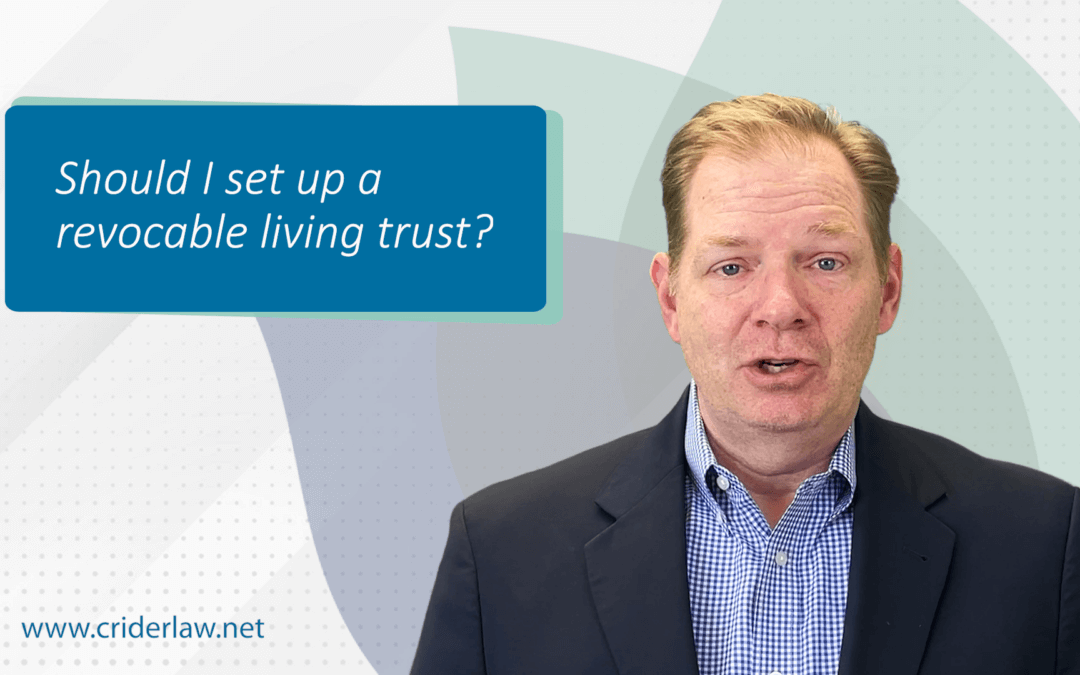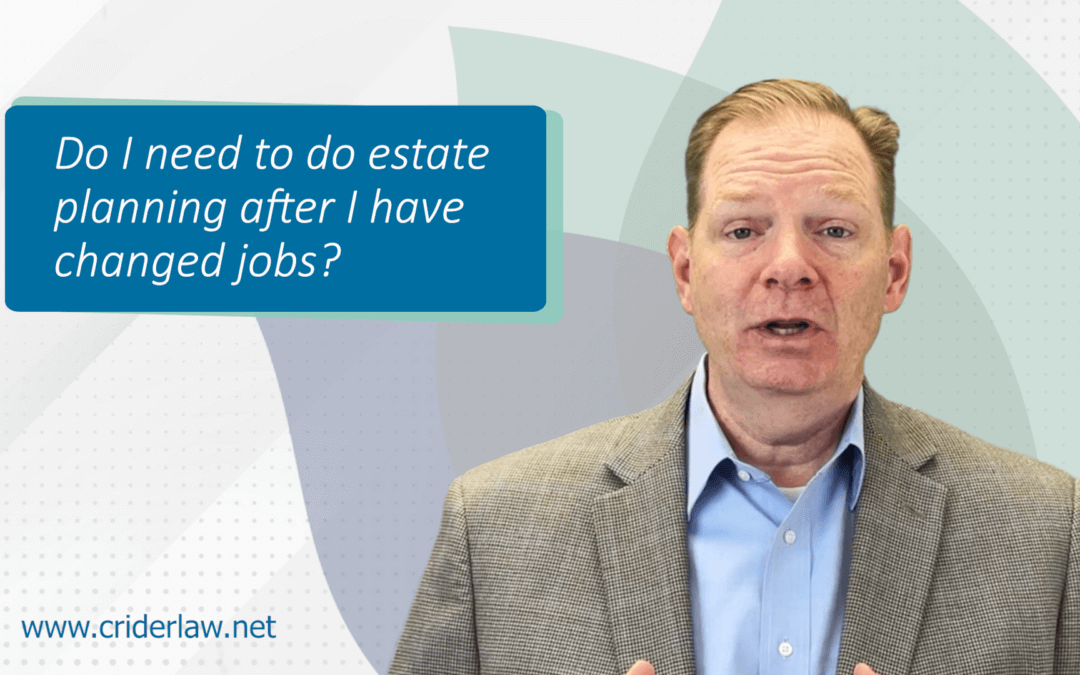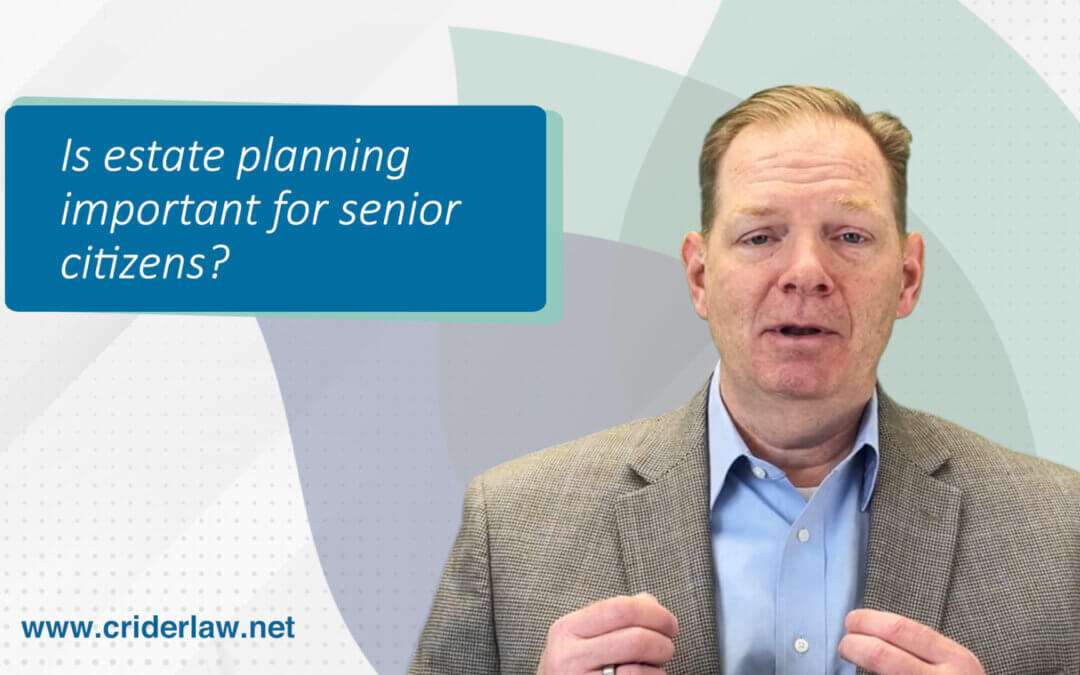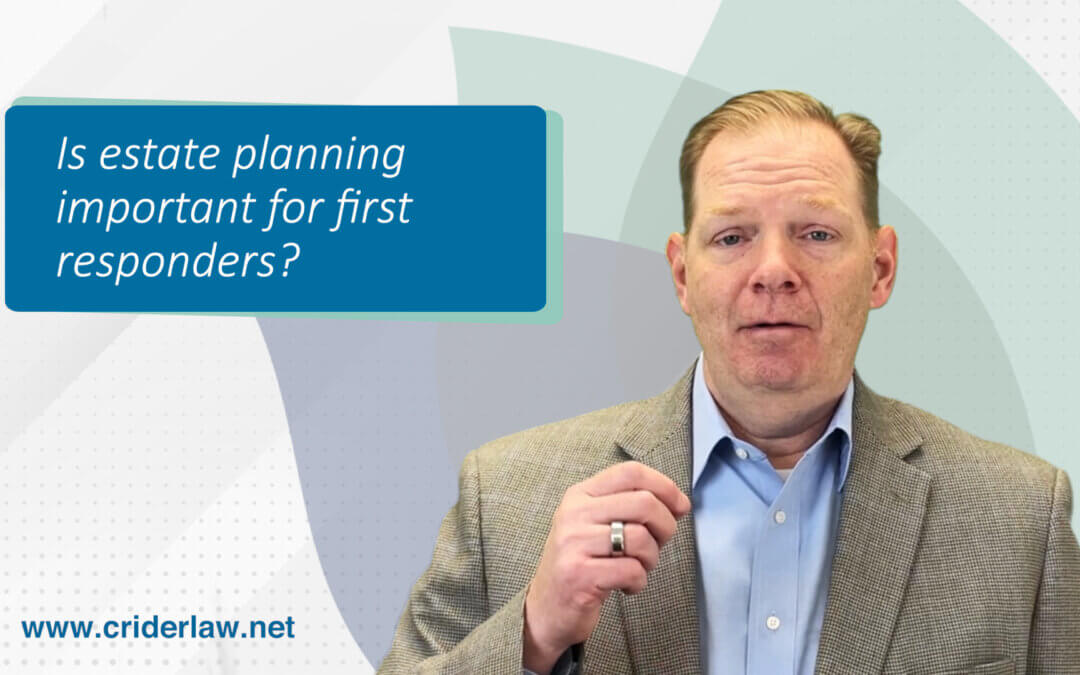
Should I set up a revocable living trust?
One of the questions I get from people is whether they should set up a revocable living trust. Now, I can’t answer that question for you in a short video on the Internet, but what I can tell you is that over 90% of the people choose to have a revocable living trust as the foundation of their estate plan. It really comes down to two factors, cost and control.
On the first side with cost is people look at the real cost of probate and realize that having a revocable living trust is the less expensive option. It allows them to avoid probate and having their assets go through court, which can take a very long time and is very expensive.
The second thing has to do with control. A lot of people want to be in control of their assets when they pass away and want to decide how those assets will be distributed to their loved ones when they’re deceased. With a revocable living trust, you can do that. You can set out how you want your assets to be distributed, to whom you want your assets to be distributed, and when those assets are distributed.
So for most people, a revocable living trust might make sense. When we meet with individuals and families, we do a deep dive into their financial history and background and find out what their assets are, and more importantly, find out what their goals and objectives are to protect themselves and their loved ones.
If you’d like to schedule a time to talk about whether a revocable living trust is right for you, please click the link below and we’d be happy to schedule up a time to meet. I’m Matthew Crider and thank you for watching:






